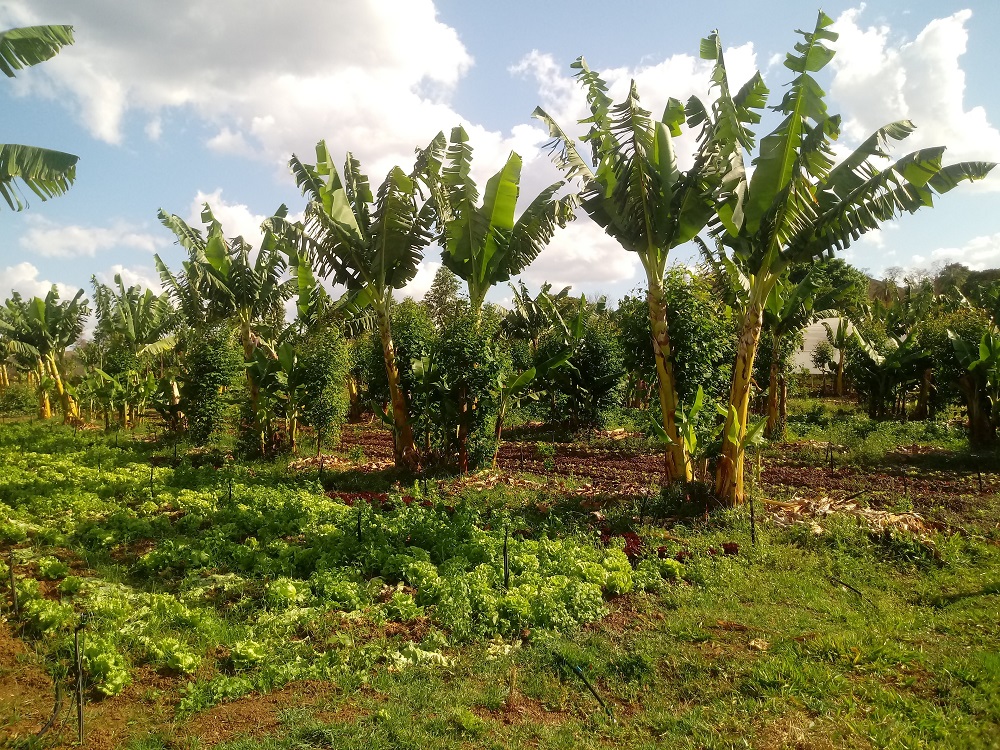The Food and Agriculture Organization (FAO) disseminates conservation agriculture practices to increase world food production, especially in small rural establishments. These practices are fundamental because of support the biodiversity and ecosystem services (ES). Using all Brazilian municipalities, we investigated the relationship between rural establishments area and conservationist agricultural practices and the relationship between these areas and conservation and environmental recovery practices did by farm owners. Considering that smaller establishments have their products more easily and affected by ES, we tested the hypothesis that these establishments use most often conservationist rural and biodiversity conservation practices. We obtained from the Agricultural Census (2017), the number of rural establishments: i) inserted in area intervals of 1-10; 100-200; 200-500; 500-1,000; 1,000-2,500; 2,500-10,000;>10,000 ha; ii) have organic production; iii) use conservation agriculture practices (e.g. crops rotation or association); iv) use biodiversity conservation practices (e.g. riparian forest conservation or it recovery). We find, by a multivariable approach, that conservationist rural practices are linked to the size of rural establishment (F(8,648)= 48,872; p<0.001) and are more common in 1-10 ha (t(648)=12,774; p<0.001) and 10-100 ha (t(648)= 5.325; p<0.001) rural establishments size ranges. Equally, the frequency of environmental conservation practices is linked to the size of these establishments (F(8,648)=17,189; p<0.001) and are more used in 10-100 ha (t(648)=4.797; p<0.001), 100 -200 ha (t(648)=- 2.754; p=0.006) and 200-500 ha (t(648)=2.881; p=0.004) size ranges of the establishments. The conservation agriculture and environmental restoration and conservation practices on agroecosystem may support biodiversity and ecosystem services, save labor time and production costs, and consequently increase the sustainability, the soil healthy, and yields. In Brazil this is stronger among the smallest establishments illustrating these farm owners as the most aware of the application of cultivation and preservation techniques of natural landscapes. Treating these producers as a special class to receive support and improve their production and productivity can be a strategic action for national environmental institutions to achieve conservationist purposes.
Post by: Anderson O. Latini1; Marcela C. Ferreira2; Jefferson L. Silva1
1Departamento de Ciências Exatas e Biológicas, Campus Sete Lagoas, Universidade Federal de São João del-Rei, Sete Lagoas, MG. 2Faculdade de Tecnologia, Pós-Graduação em Ciências Florestais, Universidade de Brasília, Brasília, DF.

